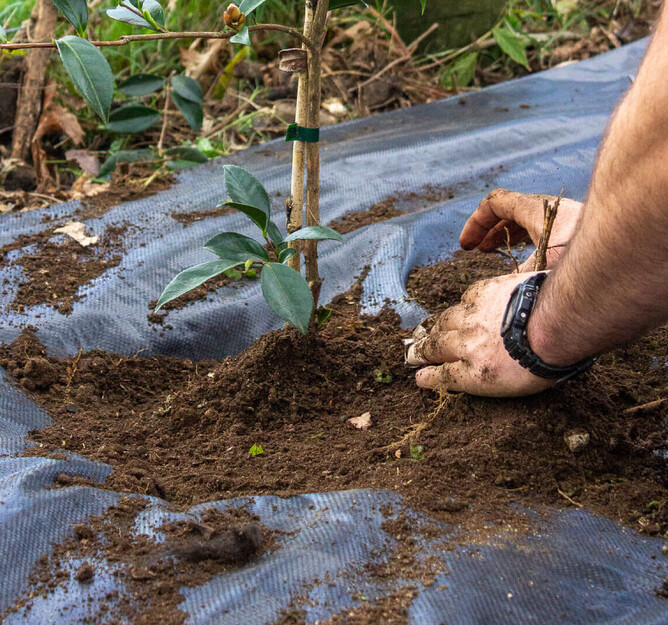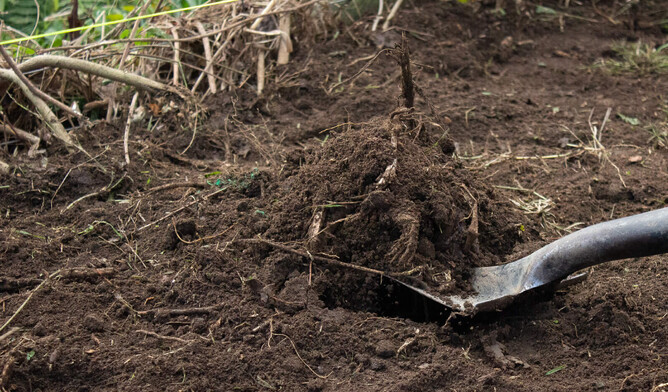Soil is as essential as tree care above ground. Unfortunately, too many times, soil for a tree is overlooked when planting.
What’s happening underground is vital and a good place to start looking if a tree’s in poor condition.
Why Is Soil Important?
Soil is crucial for healthy plant growth, human nutrient and water filtration. In addition, healthy soil is more resilient to the impacts of climate, like drought, flood and fire.
Soil is made of minerals, nutrients, liquids, air, gases, organic matter and billions of microorganisms. Trees depend on soil for air, water, minerals, nutrients and anchorage. They are the main contributors to organic matter, such as leaf litter. When leaves fall to the ground, they will slowly break down and decompose on the ground as a natural process.
Nature has a beautiful way of looking out for itself even though human life interferes significantly. What grows and dies will eventually be absorbed back into Earth.
Know Your Soil Before Planting A Tree
Planting a tree suitable for your soil makes sense, right?
Yet, we often see or hear people complaining about their trees not growing well or signs of them dying. To resolve this matter, the first thing you should do before planting is to research the type of soil in your region.
If you don’t know the soil type of your area, look at the chart below. You will find all the soil types according to all regions across New Zealand. This is because each tree requires different soil to grow successfully.
Trees Benefit From Soil
Five reasons why soil is essential for a tree’s growth:
It supports the tree’s roots so they can absorb nutrients and minerals.
It filters out the pollutants that can harm trees.
It provides physical support for trees.
It stores water for trees.
It supports biodiversity.
If you notice your tree showing signs of stress, such as leaf discolouration, brittle limbs or stunted tree growth, these are possible signs of unhealthy soil.
How Urban Life Impacts Soil
We plant trees in urban areas for many reasons:
It improves the air quality.
It cools cities during the warmer seasons.
They support and create habitats for wildlife.
It reduces noise pollution.
It reduces soil erosion.
It reduces energy costs.
It improves mental health.
While all of these are positive impacts, soil compaction is a big problem. In every area where humans and machines exist and built infrastructure, soil compaction will be present. The phenomenon occurs when soil particles are pressed together, reducing pore space, oxygen levels, and soil drainage. The compaction causes poor gas exchange; therefore, the roots will asphyxiate.
If you are thinking of planting trees in an urban setting, it’s vital to ensure they are placed in an appropriate location and have the proper soil structure. Allow enough space between trees, so their roots propagate efficiently without causing any structural damage.
Walking close to a tree or parking your car close to a tree are simple things we do that cause soil compaction. So, instead of planting a tree near a driveway, plant it in an area where heavy loads or people won’t always access it—little things like this impact a tree’s health more than you think.
Let’s be more conscious of our surroundings and think about nature.
Remember to always look at what is happening below ground.



